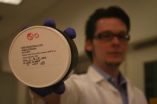Don't burn out: Enjoy your favorite products more by consuming them less frequently
2012-08-15
(Press-News.org) Consumers enjoy products more in the long run if they don't overuse them when first purchased, according to a new study in the Journal of Consumer Research.
"Consumers are naturally prone to consume products they enjoy too rapidly for their own good, growing tired of them more quickly than they would if they slowed down," write authors Jeff Galak (Carnegie Mellon University), Justin Kruger (New York University), and George Loewenstein (Carnegie Mellon University).
We often face decisions about how rapidly to consume products we enjoy: how quickly to eat a favorite dessert; how often to listen to a favorite song; or how frequently to play a new video game. But do we make choices that maximize our enjoyment of such products? It turns out that there may a selfish reason to resist the temptation to overindulge.
The authors asked consumers to eat a well-liked food such as chocolate or play an exciting video game either at their own pace or at longer intervals. When consumers were given the ability to choose a rate of consumption and that decision was constrained to force them to consume slowly, they enjoyed the overall experience more than those who either chose their rate of consumption in an unconstrained manner or those whose rate of consumption was chosen for them.
Because consumers choose to consume too quickly, they don't appreciate that spacing out consumption decreases satiation and thereby increases enjoyment. Paradoxically, we tend to make choices that will bring us less pleasure overall.
"When you are lucky enough to be able to choose how often to consume the things you enjoy, space out your consumption. Not only will the experience last longer, but it will be more enjoyable as well," the authors conclude.
INFORMATION:
Jeff Galak, Justin Kruger, and George Loewenstein. "Slow Down! Insensitivity to Rate of Consumption Leads to Avoidable Satiation." Journal of Consumer Research: February 2013. For more information, contact Jeff Galak (jgalak@cmu.edu) or visit http://ejcr.org/.
END
ELSE PRESS RELEASES FROM THIS DATE:
2012-08-15
Growing communities can overcome conflict and fragmentation, and increase diversity, without losing their sense of collective belonging, according to a new study in the Journal of Consumer Research.
"Consumption communities are groups of people united by a shared passion. A persistent challenge to community is continued engagement, and collective enterprises can be destabilized by differences as they grow. Our research shows how community members leverage social and economic resources to overcome differences," write authors Tandy Chalmers Thomas (Queen's University), ...
2012-08-15
Confident consumers pay more attention to advertisements and product information that focus on high-level features of a product, according to a new study in the Journal of Consumer Research. Less confident consumers, however, focus on the basics.
"When we feel confident, we think that abstract information is more relevant to us. But when we feel doubtful, we think that concrete information is more relevant. The more relevant we perceive information to be, the more we will focus on it," write authors Echo Wen Wan (University of Hong Kong) and Derek D. Rucker (Kellogg School ...
2012-08-15
Sticky plaques of proteins called amyloids mark several different, though related degenerative brain diseases including Alzheimer's, Parkinson's and Creutzfeld-Jacobs.
The symptoms of these disorders overlap and methods to diagnose and monitor them are not very advanced.
To solve this problem, scientists at the University of California, San Diego, have devised several new fluorescent probes that change color depending on what type of amyloid they encounter. Because amyloids accumulate in the eye as well as the brain, their discovery offers hope that one day neurodegenerative ...
2012-08-15
For the first time, engineers at the University of New South Wales have demonstrated that hydrogen can be released and reabsorbed from a promising storage material, overcoming a major hurdle to its use as an alternative fuel source.
Researchers from the Materials Energy Research Laboratory in nanoscale (MERLin) at UNSW have synthesised nanoparticles of a commonly overlooked chemical compound called sodium borohydride (NaBH4) and encased these inside nickel shells. Their unique nanostructure has demonstrated remarkable hydrogen storage properties.
"No one has ever ...
2012-08-15
The Pipe Nebula is a prime example of a dark nebula. Originally, astronomers believed these were areas in space where there were no stars. But it was later discovered that dark nebulae actually consist of clouds of interstellar dust so thick it can block out the light from the stars beyond. The Pipe Nebula appears silhouetted against the rich star clouds close to the centre of the Milky Way in the constellation of Ophiuchus (The Serpent Bearer).
Barnard 59 forms the mouthpiece of the Pipe Nebula [1] and is the subject of this new image from the Wide Field Imager on the ...
2012-08-15
An international team of researchers has found that certain bioactive components found in human milk are associated with a reduced risk of HIV transmission from an HIV infected mother to her breast-fed infant. Their study will be published in the August 15 online edition of American Journal of Clinical Nutrition.
"In developing countries, HIV-infected mothers are faced with the decision of whether or not to breastfeed their babies," said Lars Bode, PhD, assistant professor in the Department of Pediatrics at the University of California, San Diego School of Medicine. ...
2012-08-15
DURHAM, N.C. – Researchers at Duke University Medical Center may finally have discovered why people with sickle cell disease get milder cases of malaria than individuals who have normal red blood cells.
In a finding that has eluded scientists for years, Duke researchers discovered that genetic material in red blood cells may help alter parasite activity via a novel mechanism that alters parasite gene regulation.
"One of the most interesting findings in our study is that the human microRNA (very small units of genetic material) found in sickle red cells directly participate ...
2012-08-15
Melting over the Greenland ice sheet shattered the seasonal record on August 8 – a full four weeks before the close of the melting season, reports Marco Tedesco, assistant professor of Earth and atmospheric sciences at The City College of New York.
The melting season in Greenland usually lasts from June – when the first puddles of meltwater appear – to early-September, when temperatures cool. This year, cumulative melting in the first week in August had already exceeded the record of 2010, taken over a full season, according to Professor Tedesco's ongoing analysis. ...
2012-08-15
In our zest for cleanliness, have we permanently muddied our nation's waters?
A science team from Arizona State University, in collaboration with federal partners,
has completed the first statewide analysis of freshwater bodies in Minnesota, finding widespread evidence of the presence of active ingredients of personal care products in Minnesota lakes, streams and rivers.
These products are a billion dollar industry and can be found in antimicrobial soaps,
disinfectants, and sanitizers to scrub our hands and clean countertops. Hundreds of antimicrobial products are ...
2012-08-15
New research from New Zealand's University of Otago is casting doubt on a landmark US study that suggested infants as young as six months old possess an innate moral compass that allows them to evaluate individuals as 'good' or 'bad'.
The 2007 study by Yale University researchers provided the first evidence that 6- and 10-month-old infants could assess individuals based on their behaviour towards others, showing a preference for those who helped rather than hindered another individual.
Based on a series of experiments, researchers in the Department of Psychology at ...
LAST 30 PRESS RELEASES:
[Press-News.org] Don't burn out: Enjoy your favorite products more by consuming them less frequently


